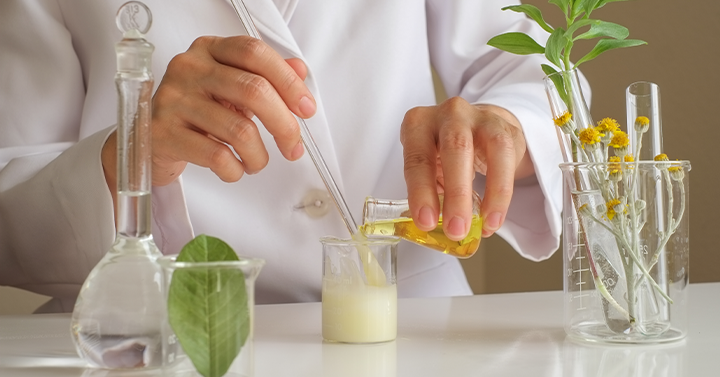Europe’s Cosmetics and personal care ingredients industries are putting a face on sustainability through “upcycling” — reusing waste materials or discarded objects to transform them into more valuable products.
It’s not surprising: Europe has already committed to becoming the first climate-neutral continent by 2050 as part of a shift to a more circular economy and the attainment of net-zero carbon emissions. In addition, the region is the largest consumer of cosmetics.
What’s Behind Europe’s Superior “Green” Report Card?
“Demand for products that include natural ingredients in their formulations was already highly visible in Europe prior to COVID-19,” says Yann Pencole, Director of Consumer Products for Kline’s management consulting practice, “but the pandemic certainly amped up this trend toward wellness and a healthier lifestyle among European consumers.“ The European Commission’s introduction of the “Green Deal” in December 2019 has only fanned the pace of this shift in consumer behavior and manufacturing processes in Europe.
Enter Upcycling
Against this backdrop, personal care ingredients upcycling is increasing in Europe. “Keep your eye on the upcycling of ingredients in the beauty world,” says Pencole. In fact, beauty suppliers across the EMEA region have observed that upcycled ingredients could be 2022’s next big trend.
Food and beverage waste is increasingly being used as the primary source of materials that can be upcycled into beauty products. This makes for a perfect fit, as natural and organic cosmetics often contain food-grade ingredients that nourish the skin — and it also creates opportunities for manufacturers of natural personal care ingredients. As such, Europe is witnessing an increase in the number of partnerships between food producers and cosmetics and personal care ingredients companies, in addition to personal care ingredients manufacturers developing portfolios of plant-based ingredients that have been upcycled from food waste.
Pencole observes that while scrubs, peelings, oils, and soaps are currently the primary applications for upcycled ingredients, some companies are already researching how to develop upcycled perfumes and other cosmetics.
Kline is excited to introduce a brand-new, Power BI-enabled delivery platform for our renowned Global Personal Care Ingredients service. The service includes a user-friendly dashboard that can be navigated with simple and intuitive clicks to find information on more than 250 ingredients; the platform is informed by a vast database for all 250 ingredients in eight key regional markets.

